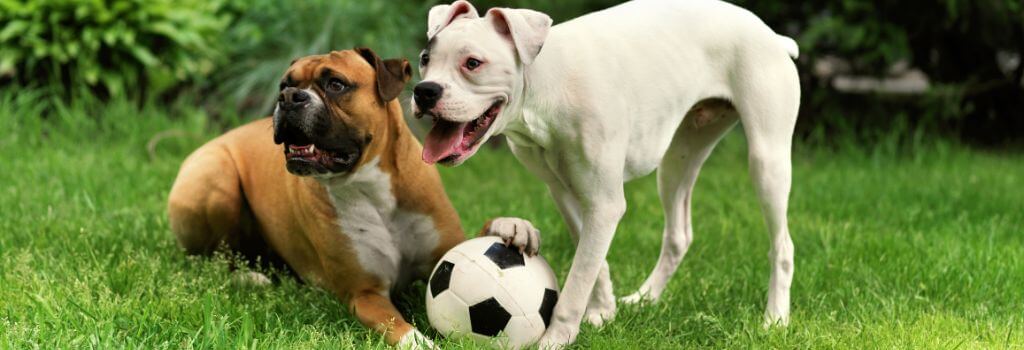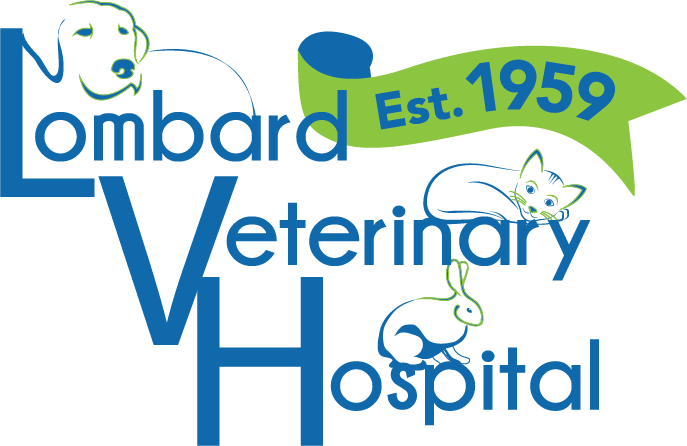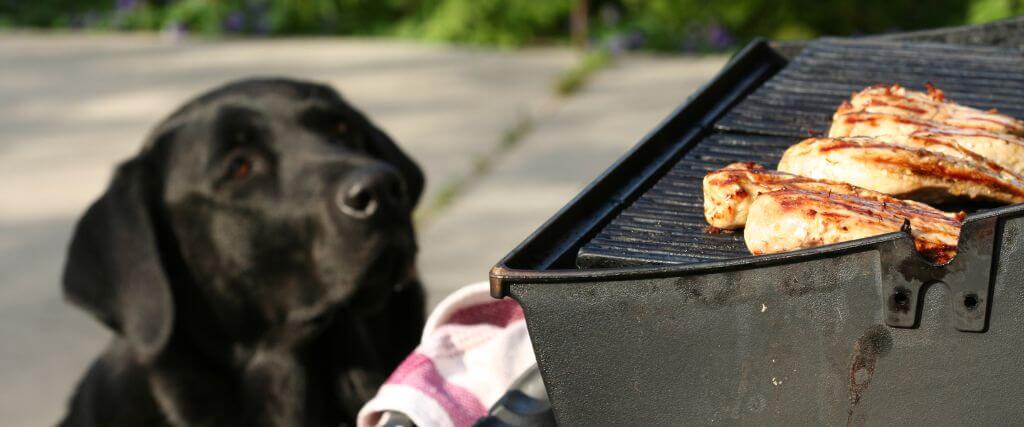Many dog owners love including their dogs in some fun summertime activities, like beach days, pool parties, and BBQs. While the vibes of these outings are typically fun and carefree, pet owners should always be aware of hidden dangers lurking at these events, especially BBQs, as they present some serious risks for dog choking accidents and bowel obstructions. Over 200,000 pet choking incidents occur annually in the United States, and so many of these incidents could be prevented by pet owners with a little know-how and vigilance.
With BBQ season in full swing for a few months in the United States, we’re going to share some of the top choking and bowel obstruction hazards dogs can be exposed to at BBQs, signs of trouble, and how you can respond if your dog ever ends up in an emergency situation.
The Basics of Dog Choking Hazards
True choking emergencies occur in dogs when something blocks or squeezes their windpipe, making it difficult for them to breathe. These blockages can be anything from food items and clothing, to inflammation or tumors.
When it comes to choking in dogs, it’s important to be able to properly identify a true choking emergency, which aren’t as common as pet owners may think. More often, dog owners will mistake coughing fits or even Kennel Cough for choking, leading to improper treatment. When in doubt, check with your veterinarian. They’ll be able to accurately identify if your dog is choking or if their behavior stems from something else, and they can tackle the cause of the problem right at the root. *Tip: Take a video during a coughing fit to show your veterinarian during your visit. These episodes can be hard to replicate on the spot and can help us immensely as we diagnose and plan treatments.
Understanding Bowel Obstructions in Dogs
When it comes to the health and safety of our furry friends, it's easy to overlook the risks that small, seemingly harmless objects can pose. While they may not be large enough to cause immediate choking, these items can still lead to serious bowel obstructions. Dogs are naturally curious creatures, often exploring their world with their mouths. This tendency makes them prone to swallowing various objects, many of which can cause obstructions.
Bowel obstructions occur when a foreign object becomes lodged in a dog's digestive tract, blocking the normal passage of food and waste. These blockages can cause significant health issues, sometimes requiring emergency surgery.
Recognizing the Signs of Choking in Dogs
Symptoms of Choking in Dogs
- Distress and Panic
- Coughing, Gagging, or Retching
- Pawing at the Mouth
- Difficulty Breathing
- Choking Sounds
- Excessive Drooling
- Blue or Pale Gums and Tongue
- Unconsciousness
- If your dog is unconscious, CPR may be necessary while you get emergency services.
- Restlessness
Symptoms of Bowel Obstruction in Dogs
- Vomiting
- Lethargy
- Abdominal Pain
- Loss of Appetite
- Diarrhea or Constipation
- Swollen Abdomen
Common BBQ Hazards for Dogs
Corn Cobs
Corn on the cob is a summer staple that you’ll likely see at just about every BBQ, but it poses a significant choking hazard and possible obstruction for dogs. Dogs are attracted to the taste and texture of corn, but corn cobs should always be kept away from dogs, as they can cause throat or windpipe blockages, major obstructions in a dog’s intestines, and a whole other slew of obstruction-related health issues for your pet.
While corn is technically a dog-safe food in limited quantities, some vets will recommend that you refrain from feeding your dog corn at all to lessen the temptation of swiping a corn cob off the picnic table at your next BBQ.
Skewers
BBQ skewers, whether made of wood or metal, can be deadly if ingested by dogs, so these are one item you will definitely want to secure and keep an eye on. Skewers can puncture the throat, stomach, or intestines of dogs of any breed or size, leading to severe internal injuries and bleeding. Even if they don't cause immediate harm, skewers can still create blockages that necessitate surgical intervention. So, if your dog gets a hold of a skewer and ingests any amount of it, a trip to the vet is an immediate must.
Bones
While bones may seem like a natural treat for dogs, they are one of the higher risk items for dogs at a BBQ or cookout. Cooked bones can splinter and cause choking or damage the gastrointestinal tract. Poultry bones, in particular, are fragile and can easily break into sharp pieces that pose serious risks similar to skewers.
If you plan on having a dog-friendly BBQ at your next gathering, make sure any proteins you serve are bone-free (and unseasoned!) to make them as safe as possible. At the end of the day, it doesn’t matter if it’s chicken, ribs, or steaks, any type of bone could create a medical emergency for your furry friend this summer.
Fruit Pits, Seeds, and Rinds

While some fruits like watermelon (without the rind!) and mangoes can be tasty treats for your furry friend, even these recommended snacks need to be handled with care in order to prevent choking and obstruction emergencies. A few common fruit-related hazards to be on the lookout for are:
- Avocado Pits
- Peach Pits
- Mango Seeds
- Watermelon Rinds
- Cherry Pits and Stems
- Apple Seeds
Leftover Food and Wrappers
Dogs are known for their scavenging habits, and you better believe they will be tempted to nose around serving areas or even dig through the trash. Leftover food, aluminum foil, plastic wraps, and other BBQ remnants can all become choking hazards for dogs if left unattended or on the ground. These items can also lead to a number of health complications, including accidental poisoning, toxic ingestion, or bowel obstruction. Ensure trash bins are secure and out of reach!
Toys & Clothing
Frisbees and tennis balls are great toys to bring along for your pup to play with during a BBQ, but be careful because even these commonly used items can be choking and obstruction hazards if you don’t keep a close eye on your dog.
The same can be said for loose articles of clothing. When everyone sets their clothes aside to hop into the pool, it can be too easy for your dog to sneak an article of clothing, like a sock, and accidentally choke on it or ingest it. Taking an extra moment to make sure your dog can’t get into anything, food, clothing, or otherwise, can be a game changer for their safety.
What to Do if Your Dog Ingests a Hazardous Item
Immediate Actions
- Stay Calm: Panicking will not help your dog and can make the situation worse.
- Check the Mouth: If it’s safe, open your dog's mouth and try to remove the object with your fingers. Be cautious not to push the object further down.
- Remove the Object: If it’s safe to do so, try to remove the object from your dog’s mouth. Once again, be careful not to push it further down the throat.
- Check for Breathing: Ensure your dog is breathing normally. If they’re choking and can’t breathe and you cannot see or reach the object, you may need to perform the Heimlich maneuver.
- Heimlich Maneuver: For small dogs, place them on their back and apply firm pressure just below the ribcage. For larger dogs, position yourself behind the dog and apply upward pressure just behind the rib cage.
- Perform the eXternal eXtraction Technique (XXT): The XXT is a blockage-clearing method specifically designed for unconscious dogs facing complete airway obstruction from objects like balls.
When to Seek Veterinary Help for Choking or Obstruction
- Active Blockage: If you suspect your dog has something lodged in its throat, but can’t remove it by following the steps above, you’ll need to get your dog to an emergency facility ASAP. Time is of the essence here, and a quick response could save your dog’s life.
- Persistent Vomiting: If your dog continues to vomit, it’s a sign they need immediate veterinary care.
- Visible Distress: Any signs of pain, lethargy, or abnormal behavior warrant a trip to the vet. Whining or vocalizations can also indicate abdominal discomfort, especially when the abdomen is touched. This is a common sign of a dog bowel obstruction.
- Loss of Appetite: Refusal to eat or drink signals time for a visit to the veterinarian.
- Difficulty Defecating or Persistent Diarrhea: Bowel changes can be a red flag for pet parents! Log your pet’s stools if you think they may have ingested something.
- No Improvement: If your dog’s symptoms don’t improve within a short period, seek professional help.
If you have any doubts about your dog’s status or health, even after removing a choking hazard, taking your dog to the vet for a full examination will always be a smart move. Having your vet look over your dog can help ensure that your dog did not incur any other damage from the choking hazard or obstruction and won’t have any other health complications as a result.
Veterinary Treatment Options
While the course of treatment that your veterinarian recommends will depend on your dog’s situation, as well as other factors, like your dog’s size, the size of the item consumed, and more, there are a few common diagnostic and treatment routes that may be recommended. These can include:
- Diagnostic Imaging: Diagnostic imaging techniques may be used by your veterinarian to locate the obstruction and determine the severity of it.
- Endoscopy: For some obstructions, vets can use an endoscope to locate and remove the object.
- Surgery: In severe cases, surgical intervention may be necessary to remove the blockage.
- Supportive Care: This may include IV fluids, medications for pain and inflammation, and close monitoring.
Keeping Your Dog Safe from Choking Hazards and Bowel Obstruction Risks

- Supervise Your Dog: Always keep an eye on your dog during BBQs. Supervision is the best way to prevent them from accessing dangerous items. Ensure guests understand the importance of not feeding your dog scraps or leaving plates unattended.
- Secure Trash Bins: If you’re at an event where food is the star of the show, any dogs present can and will rummage through trash for tasty leftovers. Use secure, dog-proof trash bins and keep areas your dog can reach, like tables, clear to prevent your pet from accessing harmful items.
- Provide Safe Alternatives: Making sure your dog has something fun to chew on can do wonders to prevent them from getting into something harmful. Give your dog safe and healthy treats to keep them occupied. Items like kong toys, dental sticks, or specially designed dog treats can divert their attention from the BBQ food or any trash.
- Educate Guests: Inform your guests about the dangers of feeding your dog at the BBQ. Many people are unaware of the risks and may think they’re just being kind by sharing their food. It's better to set boundaries with your guests rather than let an emergency happen because they didn’t know they weren’t supposed to!
- Create a Safe Space: Denying any dogs at your BBQ access to areas with choking hazards is a great prevention strategy that also gives dogs their own space to enjoy the festivities. Set up a designated safe area for your dog, away from the BBQ zone.
- Have Your Veterinarian’s Information On Hand: While pet owners shouldn’t always assume an emergency will happen, it doesn’t hurt to be prepared. Have your veterinarian’s number handy in case of emergency, and make sure you know how to reach your vet’s office if you’re in an unfamiliar neighborhood.
If you have questions and you'd like to reach out to us, you can call us directly at (630) 627-7090, or you can email us at [email protected]. Don't forget to follow us on social media Facebook, Instagram.

